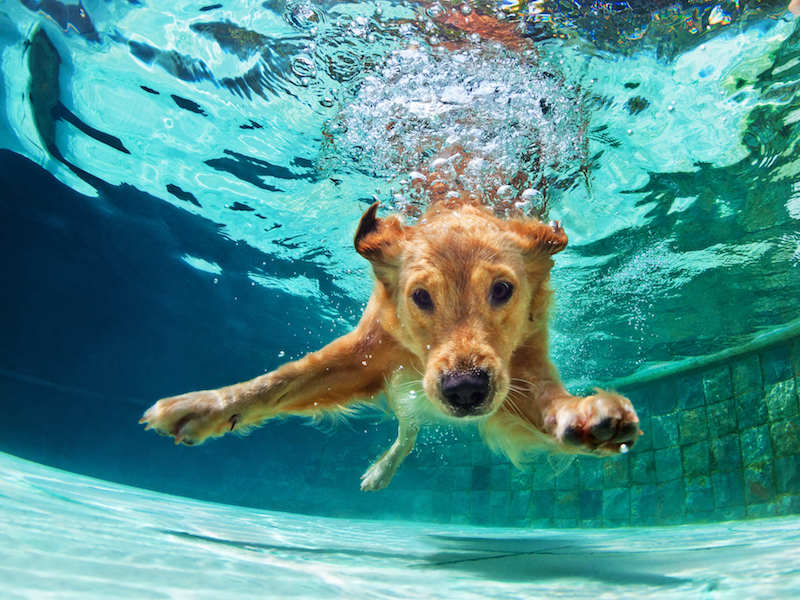
There are many factors which can affect the circuitry of your hearing aids. Hearing aids seem to self-destruct under extreme moisture conditions. Taking that into consideration, humidity is a huge problem.
Moisture that you can’t see has the greatest chance of causing permanent damage. It’s essential to educate yourself about why humidity damages hearing aids.
Let’s Talk About Humidity
Despite the fact that the word humidity is very common, what does it really mean? PBS describes humidity as water molecules in the air. When displayed as a percentage, for example, the relative humidity is 40 percent today, it refers to the amount of water vapor in the air compared to what air could hold. The larger the percentage, the wetter everything feels.
Humans cool down their body by sweating so that makes us very sensitive to humidity. When humidity levels are too high our sweat won’t evaporate as fast. Moisture and electronics don’t mix well and that includes hearing aids.
Typically Electronic Devices Have a Hard Time Dealing With Humid Weather
Too high or, too low, humidity can impact your hearing aids. When water vapor percentages are high condensation can accumulate on the delicate mechanisms that make electronics function, and low humidity can result in brittle core materials.
Hearing aids depend heavily on internal electronics to function. An advanced audio processing chip manages noise levels in a modern hearing aid. It’s what is behind elegant functions like:
- Noise reduction
- Anti-feedback
- Targeted listening programs
- Digital sound streaming
Moisture can accumulate within the hearing aid when humidity is high and damage that component. Batteries get ruined and you get corrosion of elements inside of the case. It’s the same as throwing your hearing aid in a tub of water.
How to Manage Humidity
Water resistant models are currently available. Having this feature doesn’t mean you can swim with your hearing aids in place, but it does offer some protection against humidity and other weather-related issues like getting caught in an unexpected rainstorm or even sweat when you exercise.
If you live in an area prone to high humidity, consider getting a room or house dehumidifier to reduce water vapor inside. It’s not just your hearing aid that will benefit, there are health benefits, and other electronic devices in the home will also be protected. Dust mites, mildew, and mold thrive in moist environments so a dehumidifier will improve the quality of breathing as well. Although a house or room dehumidifier will help protect your hearing aids, it’s not enough. There are a few other things you can and should do.
Consider buying a dehumidifier designed especially for hearing aids. They come at all costs levels. Drying kits rely on silica gel crystals to protect the electronics. Moisture is eliminated by putting the hearing aids into the dehumidifier for a couple of hours. Drying your hearing aids as you sleep at night can be done using specially designed storage containers. If it is very humid and you have no other way, uncooked rice can reduce moisture.
Get in the habit of opening the battery compartment every time you store your hearing aids. By pulling that door open before you put the hearing aid down, you expose the batteries and other elements to the air, allowing any condensation built up to evaporate naturally. Do this all year round, not just in the summer months.
Always store your hearing aids in a cool, dry place. On the table in the sun, in the glove compartment, or in a hot room are examples of where not to store your hearing aids.
Other Moisture Concerns
Air vapor is not the only moisture that can damage hearing aids. Take precautions to protect them from other kinds of wet such as:
- Don’t touch your hearing aids with hands that are still moist from lotion.
- Find a safe place to store your hearing aids if headed for the pool or beach.
- Wear a sweatband when exercising. If you are wearing your hearing aid then it’s a good idea in general. Later that sweat will cause problems.
- Try not to put your hearing aid down on wet surfaces. You don’t want to place it in a wet spot left by a glass or coffee cup.
Your hearing aids are a valuable asset, so treat them that way. Consider how moisture and humidity can impact them and take steps to prevent water damage. If your hearing aid already has water damage make an appointment for service with a hearing aid specialist.